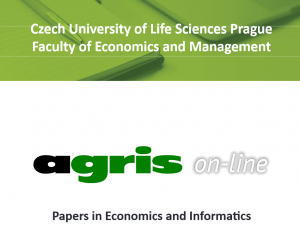Do Subsidies Decrease the Farm Income Inequality in Hungary?
Imre Fertő, Štefan Bojnec, Szilárd Podruzsik
AGRIS on-line Papers in Economics and Informatics 
No 2/2022, June pp. 49 – 56
ABSTRACT
The paper investigates the impact of different sources of income on farm household income inequality in Hungary using Farm Accountancy Data Network dataset for the period 2007-2015. The decomposition of the Gini coefficients by income sources is applied to focus on the impact of the policy shift from market to government support on farm household income inequality. Off-farm income are rather stable with a slight increase impact on farm household income inequality. Pillar 1 for direct income support subsidies have remained more important than Pillar 2 for rural development subsidies for farm income due to the importance of direct payments or single area payments for crop production. A slight increase in the importance of subsidies from Pillar 2 can be linked to a policy shift towards targeting farms in less favoured areas, and a greater role of agri-environmental and other rural development payments. The most striking finding is regarding instabilities, declining pattern, and for a large majority of farms negative market income. Subsidies from Pillar 1 reduced, while market income increased farm household income inequality.
KEYWORDS: Income inequality, off-farm income, Gini decomposition.


